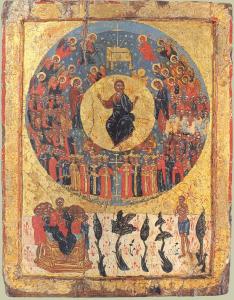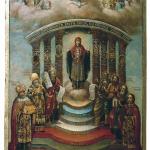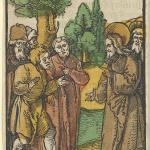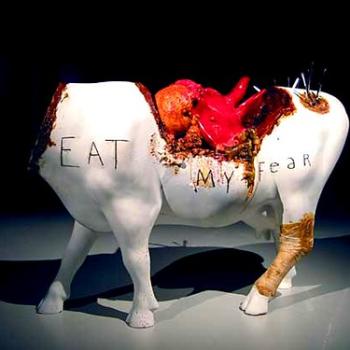
I recently saw someone break American Catholics down into two categories: liberal and conservative. The former, he said, see all things through the lens of God’s mercy; the latter interpret life through the lens of repentance. According to him, both of these approaches are lacking and a third must be propounded.
I can’t say I much agree with his classification (I think there are a lot of other sorts of Catholics in the US, and I wouldn’t say “mercy” and “repentance” can be our heuristics). But it raises an interesting question, one asked many times before: what does it mean for God to be wrathful and loving, just and merciful? There are many possible answers to this question (if it can truly be answered). For now, let’s look at a passage from a famous mystic that seems to deny that God could be vengeful or angry:
The vengeful God of wrath and punishment
is a mere fairytale. It simply is the Me
That makes me fail.
(Angelus Silesius)
The first half of this poem sounds like it could come from a New Atheist: a god who cares what humans do, and especially one who punishes them, is petty. Such a figure doesn’t deserve such a title. It is inconceivable to honor a horrendous, monstrous being with the name of divinity. And yet, things change when we get to the second half. “Failure” is not denied, but something called “the Me” is held responsible for it. Another Silesius poem might help us figure out what he means here:
Unless you find paradise at your own center,
there is not the smallest chance
That you may enter.
(Angelus Silesius)
It seems that “the Me” is an emphasis on oneself over the “paradise” at one’s own center. This might sound a little New Age to some, but it is most assuredly not, as this other Silesius poem demonstrates:
All heaven’s glory is within and so is hell’s fierce burning.
You must yourself decide in which direction you are turning.
(Angelus Silesius)
One could note Silesius’ rejection of Lutheranism as a possible source for this emphasis on our free will to choose in salvation, but his point is clear enough: we are given grace by God and in that grace we work out our salvation in, as St. Paul put it, fear and trembling. This means being responsible for what we do, recognizing that our choice of Hell is just that, a choice, a rejection. In this sense, we must seek to follow Christ in our hearts, avoiding sin and the consequences thereof. A recent piece in Aleteia traces a similar idea back to early Christianity:
According to the Desert Fathers, uncontrolled thoughts are the origins of some of the sicknesses of the soul. They identified eight non-psychological sicknesses of a spiritual origin, classified by the monk Evagrius as: greed of any sort, a pathological relationship to sex, a pathological relationship to money, sadness, aggressiveness, acedia (an illness of the soul expressed by listlessness, boredom, laziness – a precursor to slothfulness) vanity, and pride. These eight generic diseases have a pathological source: narcissism, which the Fathers called philautia, excessive self-love.
One of the causes for these thoughts, which were considered as troubling, was the imagination. If an imagination is left uncontrolled it elicits visions which sometimes crowd our minds to the point of taking over. With worst-case scenarios stemming from pornographic images, undeserved accolades… “The imagination leads us to make up stories in our heads that are not always correct or pacifying,” sums up Xerri. Where it is in our power to control them: “Whether the thoughts trouble us or not is something beyond our doing. But whether they dwell within us or not, that they stir up passions or not, is something which is within our power,” wrote one of the Desert Fathers, John Damascene, in his A Speech Useful for the Soul. We will always be a theater of sensations and thoughts: the question is, what do we do with it? “Faced with such a thought,” Xerri reminds us, “man has various possibilities: to acquiesce or not, to feed it or resist it.” (Mathilde De Robien)













